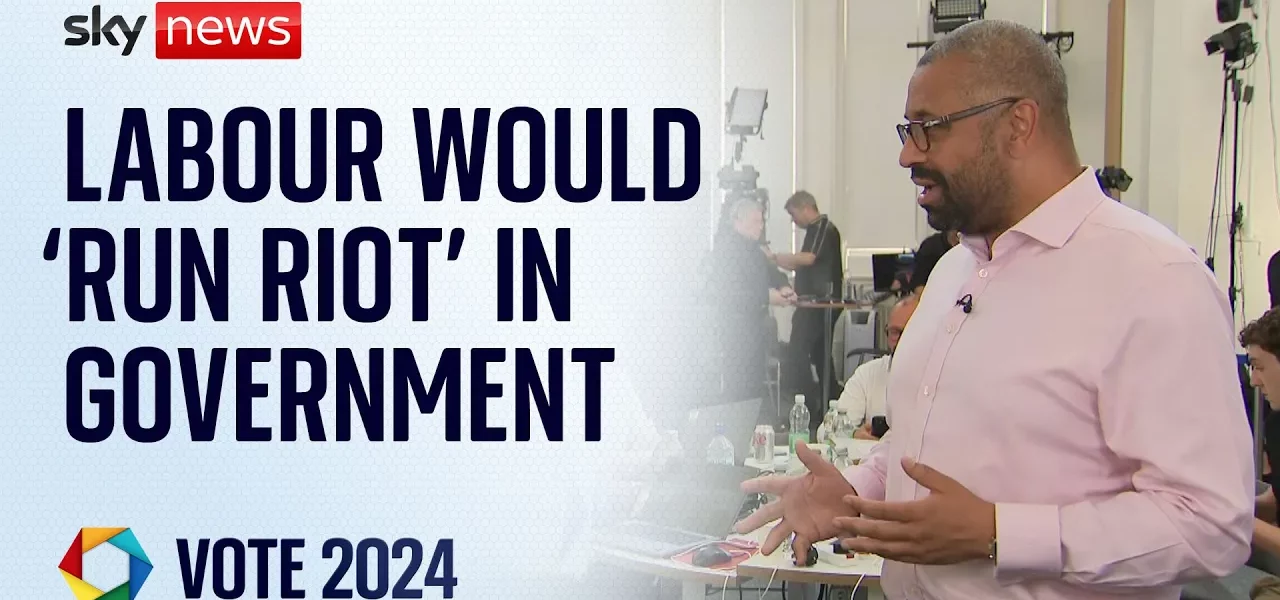James Cleverly on Honesty and Taxation Ahead of the Elections

In this article, we delve into the political landscape as Home Secretary James Cleverly articulates the Conservative Party’s stance on honesty, taxation, and their vision for the future amidst the upcoming elections. With a focus on trust and the impact of recent scandals, this analysis offers insights into the strategies that may shape voter perceptions and decisions.
Introduction
The political discourse in the UK is heating up as the election approaches, with Home Secretary James Cleverly providing insights into the Conservative Party’s strategy. In a recent interview, he emphasized themes of honesty and the implications of taxation policies proposed by the Labor Party. With scandals and trust issues at the forefront of political conversations, Cleverly’s assertions aim to strengthen the Conservative narrative while addressing public concerns regarding fiscal responsibility and transparency.
The Importance of Honesty in Politics
One of the central themes of Cleverly’s discussion was the call for honesty in political discourse. With accusations of dishonesty directed at the opposition, he emphasized the need for transparency in government communication. The following points summarize his stance:
- Cleverly criticized the Labor Party for allegedly concealing the true costs of their proposed green taxes.
- He highlighted a recent audio clip where a key labor figure suggested that the actual costs could be substantially higher than publicly stated.
- The Home Secretary argued that such dishonesty undermines public trust and could have long-term repercussions for governance.
Taxation Policies: A Point of Contention
Taxation remains a pivotal issue in the upcoming elections, with both major parties presenting starkly different visions. Cleverly outlined the Conservative approach, which he believes prioritizes the financial well-being of the public. Key points include:
Conservative Tax Commitments
The Conservative Party has pledged to:
- Reduce National Insurance contributions, aiming to alleviate the tax burden on working individuals.
- Scrap National Insurance contributions entirely for self-employed individuals to promote entrepreneurship.
- Ensure that working people experience the lowest tax burden in decades.
Labor Party’s Tax Strategy
Cleverly also addressed the Labor Party’s approach to taxation:
- Accusations that Labor tends to increase taxes whenever feasible.
- Concerns that a potential Labor government could lead to significant tax hikes, impacting the financial stability of families.
Scandals and Their Impact on Trust
The conversation also ventured into the recent scandals that have plagued the Conservative Party. Cleverly expressed his discontent regarding how these issues distract from the party’s core messages. Important aspects include:
Response to Gambling Scandals
Cleverly acknowledged the ongoing investigations into candidates from multiple parties, including the Conservatives, regarding gambling allegations:
- He emphasized the Prime Minister’s frustration over these issues, asserting that public service should be about serving the community.
- The party has initiated internal investigations and acted against candidates who do not meet their standards.
Maintaining Focus on Key Issues
Despite these distractions, Cleverly reiterated that the party’s focus should remain on:
- Enhancing public safety by increasing police presence.
- Communicating a clear choice to voters about taxation and governance.
- Building trust through consistent and transparent communication.
Conclusion
As the election campaign intensifies, the Conservative Party, represented by Home Secretary James Cleverly, is articulating a strategy centered around honesty, trust, and responsible taxation. The emphasis on transparency in political communication, coupled with firm commitments to reduce the tax burden, aims to resonate with voters seeking stability and integrity in governance. As the political landscape evolves, it will be crucial for all parties to address public concerns authentically. The call to action remains clear: voters must remain vigilant and informed to make choices that align with their values and aspirations for the future.
“`




